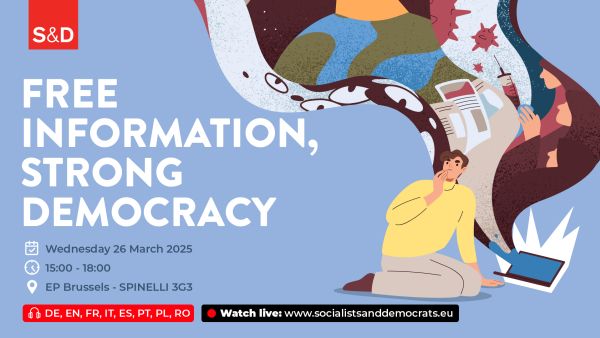The S&D Group today set out 16 proposals in a position paper to improve the quality of our education systems making them more inclusive for the younger generation: ‘European Education Area: our reality for 2025’. The position paper comes ahead of the European Commission's paper on youth skills and was sent, together with a letter, to Commission president von der Leyen, deploring that the updated proposal for the long-term EU budget and the European Recovery Plan do not sufficiently consider educational challenges.
Ismail Ertug, S&D vice-president in charge of culture, stated:
“We have to make the European education area a reality. In this regard, we, as the S&D Group, propose 16 actions to be implemented across the EU aiming to make education a real social elevator for all. We see, for example, a real need for making early childhood education more accessible and affordable, increasing the attractiveness of the teaching profession, establishing vocational education and training systems, or improving the teaching and learning of languages.”
Petra Kammerevert, S&D spokeswoman on education, added:
“Commission president von der Leyen is making a mockery of the long-term EU budget by reducing the budget allocations for the Erasmus+ programme, the most important EU funding scheme for education, training, youth and sport. In her inaugural speech in June 2019, she promised to support the European Parliament in our call for tripling the Erasmus+ budget. Compared with what the Commission originally planned for Erasmus+ in May 2018, we are now dealing with a funding decrease of about 7%. We are thus further away from tripling the Erasmus+ budget than ever before. Mrs. von der Leyen should not use COVID-19 to break her promise.”
“We cannot have a #NextGenerationEU without actually investing in the next generation! Today, it is more important than ever to invest massively in education at all levels. Therefore, we see the necessity to set a European benchmark for public investments in education systems. Member states should aim to invest at least 10% of their respective gross domestic product in education.”
Victor Negrescu, rapporteur on the CULT Report on Shaping Digital Education policy, said:
“While education remains nationally focused, the challenges the European education systems have to confront now and over the coming years, such as digitisation, do not know borders. Education systems across the EU have shown weak spots during the COVID-19 pandemic. Education almost came to a standstill, as digital education still is far from being a reality in most member states.”
“Digital skills are increasingly necessary for citizens to participate in society, benefit from accessible digital services and progress in their career. We therefore call for enshrining media and digital literacy on all educational levels for all generations and for putting in place a progressive European Skills Agenda and Digital Education Action Plan.”












